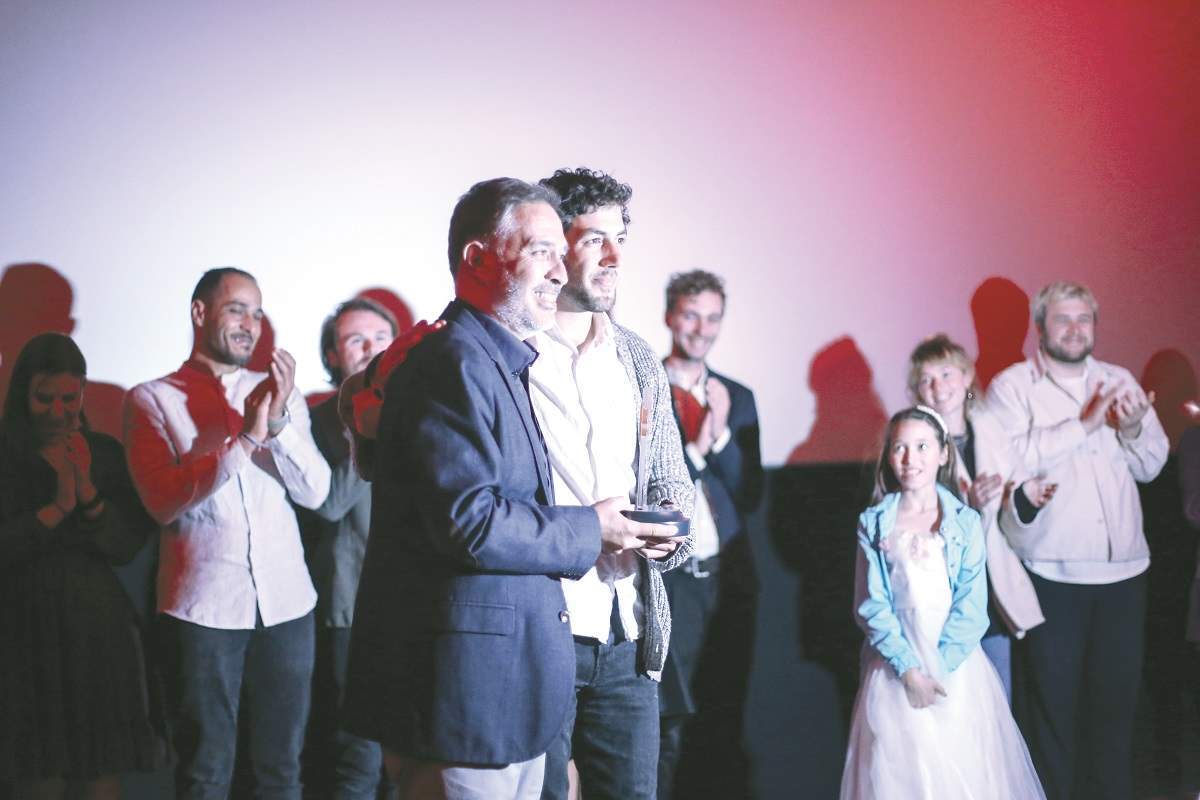AMMAN — A film says a lot about the person behind it and about the time in which we live, and Murad Abu Eisheh’s “Tala’vision” reflects a facile understanding of war.
اضافة اعلان
A combined Jordanian and German effort screened the film on Tuesday. The film details a problem that has been present for many years — the refugee crisis.
 The cast of “Tala’vision” are pictured in this photo taken on Tuesday, during a screening of the film. (Photo: Majo Tielve/Jordan News)
The cast of “Tala’vision” are pictured in this photo taken on Tuesday, during a screening of the film. (Photo: Majo Tielve/Jordan News)
“In 2019, Murad came to us to present the script of the short film,” said “Tala’vision” coproducer Philipp M. “We were facing a big refugee crisis, so wose wanted to understand what was going on more from a child’s perspective. That’s when we decided to produce the film.”
Born in Jordan in 1992, Abu Eisheh has a passion for telling stories about the Arab world, the director told
Jordan News: “I want to make films that tell stories from here. We need to produce cinema from the Middle East region; hand-in-hand with locals, for international audiences, and expose the criticism that people face here.”
The 28-minute drama is Abu Eisheh’s third short film, marking “Tala’vision” a turning point in his career. The film stars Ziad Bakri, Khalid Al-Tarifi, and Aesha Balasem and won the “Student Academy Awards — Oscars.” The film was the first Arab nomination in the fiction category.
This short film, directed by Abu Eisheh, is intended to be a poetic reflection of what the struggle of war represents and how it is seen through the eyes of childhood.
At one point in the production, a little girl named Tala sits by a window and looks outside, and I emphasize that scene because children do that kind of thing. They just sit, enjoying the view outside the window. This was one of the few scenes where I managed to feel a connection to the situation or the character. It was a very beautiful scene that reflected the cinematography of “Philip Henze,” and the script and direction of Murad.
The young director managed to give us realistic impressions of the region and the situation. While the script rarely managed to evoke a connection to the narrative, there were precious moments, such as a scene where boy swears at Tala when she is at the window, giving us a picture of the mentality of men towards women.
The director, in an interview with
Jordan News, said the hardest part was finding an actress to play the role of Tala, and directing a girl for the first time.
“I learned a lot about childhood trauma. I started the film with one idea and it ended up being another; I didn’t realize the impact this role would have on the life of the girl we chose. She went through a similar situation; her father was arrested during the war, her mother wasn’t there, and she was taking care of her siblings,” Abu Eisheh said.
He added that her situation encouraged the team to work with a child therapist to make sure she was not in distress during the making of the film.
However, the film did face an issue with the protagonist. The actress who plays Tala certainly looks the part, but her lack of acting experience is noticeable.
With that said, Tala is a great debut film for the young actress. There are other highlights of the film, like the final shot, where the camera does a great job.
How we consume and make films is changing. This third film from the director shows us his attachment to fiction within his world. “Tala’vision” shows the ravages of war; within war there is no childhood, no life. There is nothing but empty spaces.
Read more Trending news



